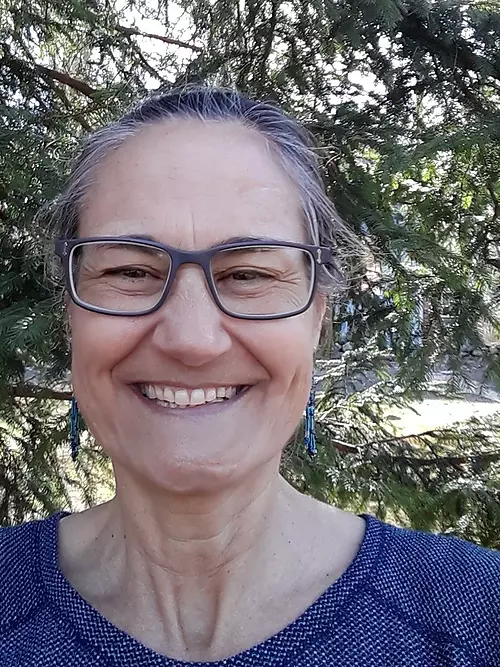Advancing health equity through anti-racism practice; patient, provider, and community engagement; and social determinants of health interventions
What Is Health Equity?
Health equity is achieved when your social identities, residence in marginalized communities, and experience with structural racism and other oppressive systems do not determine your health outcomes. Achieving health equity requires an intentional and persistent focus on removing obstacles to health and strengthening the quality of culturally responsive and bias-free care.
This focus is a central element of our approach to research, health care interventions, community-based services, and public health policy. Our analysis, implementation, communication, and evaluation efforts explore innovative solutions for eliminating health disparities and improving health outcomes by working with communities and populations who are disproportionately burdened to identify and address their needs.
Learn more about our commitment to achieving health equity and how we can support you in ensuring equitable health for all.
Social Determinants of Health
Identifying and mitigating non-medical factors that influence health outcomes
Per the U.S. Department of Health and Human Services, “social determinants of health (SDOH) are the conditions in the environments where people are born, live, learn, work, play, worship, and age that affect a wide range of health, functioning, and quality-of-life outcomes and risks.” Many social risk factors—such as economic insecurity, housing instability, and social needs like food, housing, and transportation—create differences in successful health care, public health, and social care across populations. To address SDOH and advance health equity, community-based public health and health care organizations must partner to eliminate structural barriers and ensure access.
The Centers for Medicare & Medicaid Services’ (CMS) Accountable Health Communities (AHC) Model is working to address the disproportionate adverse impacts of SDOH on racial and ethnic minorities, low-income populations, people with disabilities, and other groups by connecting qualified Medicare and Medicaid beneficiaries who have health-related social needs with community resources.
Successfully addressing adverse impacts of SDOH requires
- reaching populations and neighborhoods at high risk for unmet social needs and taking a human-centered approach (getting to know individuals and populations and their deep experiences; showing empathy) to identify and understand the barriers and challenges that give rise to their needs;
- engaging communities, community partners, community clinics, and community-based organizations through an equity lens and building intersectional and sustainable solutions that leverage their strengths and address their unique needs; and
- developing interventions; testing, measuring, and evaluating intervention effectiveness; and scaling and replicating successful interventions.
Health Equity Research
Building equitable approaches to health research across populations
To achieve health equity in research, the needs and priorities of diverse patients and community members must be at the center of the research process. Fair representation and diverse voices must be built into the research process to understand lived experience—including barriers to accessing equitable care—to make findings more relevant and actionable.
The National Institutes of Health’s (NIH’s) All of Us Research Program is leveraging an inclusive approach by engaging diverse participants across the United States—particularly from communities that have been historically underrepresented in biomedical research—to gather data to drive innovation in health care and understand how environment, behaviors, and genomics interact to produce health and illness.
Building equity into clinical and population health research means
- working with diverse community members and community-based organizations to co-create inclusive solutions;
- creating data collection protocols that are culturally responsive and adhere to FAIR (findable, accessible, interoperable, and reusable) data standards; and
- using a person-centered, culturally responsive, and equity-centered research approach that
(1) recognizes the role that racism and oppression play in health outcomes,
(2) mitigates researchers’ bias throughout the research process,
(3) eases or removes burdens of participation (e.g., ensures transportation access) and values lived expertise by fairly compensating participants, and
(4) ensures the inclusivity of data collection instruments and reporting by communicating in an accessible manner.
Community Engagement
Advancing health equity through creative, community-driven solutions
Applied research and public health practice must engage communities to promote health equity. Embracing partnerships and recognizing stakeholders within communities is critical to successfully building community capacity to address SDOH and other factors that promote healthy living.
The NIH Helping to End Addiction Long-term (HEAL) initiative’s HEALing Communities Study is leading the way in community-based interventions by testing the implementation of evidence-based interventions in communities hit hardest by the opioid epidemic to identify best practices that communities across the country can replicate.
Engaging communities to develop effective health equity solutions includes
- learning from community members to better understand strengths that can be leveraged to address SDOH and promote health equity;
- sharing data, practice-based evidence, and other resources to help build communities’ capacity for addressing SDOH and advancing health equity;
- collaborating with communities to identify and address root causes of health inequities, including structural racism and discrimination;
- partnering with communities to design, implement, and monitor applied research studies and public health interventions to ensure responsiveness to community priorities;
- co-developing communication materials to raise awareness of health issues and connect priority populations to resources and services; and
- disseminating outcomes through action-oriented policy forums with decision-makers.
Equitable Access to Quality Care
Addressing health disparities to find solutions for equitable access to treatment and quality care
Equitable access to quality care and preventive treatment ensures positive outcomes for all. The shift to value-based care has highlighted inequities in outcomes of care, illuminating the need to develop, implement, and evaluate care models that address health disparities in underserved populations.
The CMS Financial Alignment Initiative (FAI) tested integrated care and financing models for Medicare and Medicaid dual enrollees and subsequently identified gaps and variations in approaches taken to address enrollees’ SDOH.
Informing public health policy to increase equitable access to quality care includes
- environmental scans and literature reviews to identify challenges and barriers to equitable treatment quality and access, as well as successful solutions implemented in communities across the country;
- data analysis for risk adjustment and trend identification;
- implementation and evaluation of intersectional health care models and interventions that address social risk factors and SDOH;
- policy analysis and dissemination of recommendations for local, state, and national government organizations and community health groups; and
- developing evidence-based, sharable solutions that include implementing sustainable actions to advance equity among vulnerable groups.
View More Ways to Advance Equity
Learn more about turning practice into impact through transformative research that leverages power, influence, and resources to advance equity with RTI's Transformative Research Unity for Equity (TRUE).
RTI is committed to centering equity at 3 levels: in our values as researchers, in the process of conducting research, and in the outcomes of our research. This requires acknowledging, addressing, and dismantling systemic biases in mindsets, practices, and policies.

Next-Generation Measurement and Analyses of Health Equity
Advanced data science methods and geospatial analytics offer deep insights into communities
Community-level SDOH measures can provide insights into factors that strongly influence health outcomes. The RTI Rarity™ project has curated a national database of more than 200 SDOH measures within 10 domains at the Census tract, ZIP code, and county level. The RTI Rarity dashboard uses supervised machine learning to create local social inequity scores, which can be linked with individual-level data to improve predictions of individual outcomes. In population-based analyses, these scores can help identify neighborhoods and areas for special focus and investment, control for SDOH in analyses, track inequity over time, inform policies and interventions to address root causes, and simulate the effects of alternative policies and future scenarios.











































